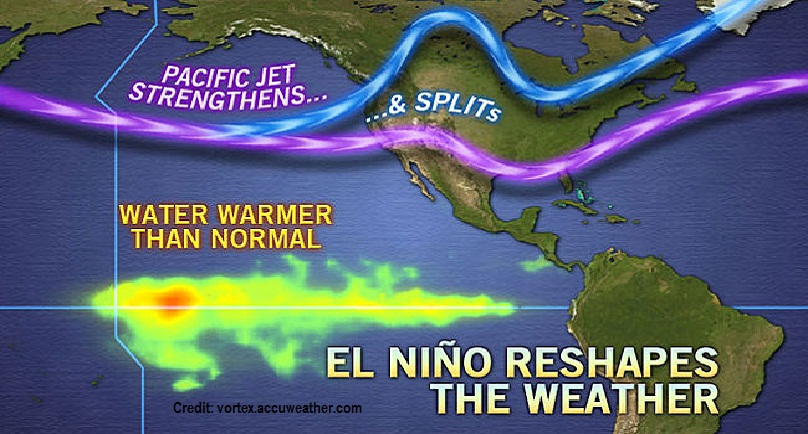By Sasha Pei-Silovo – EM TV Online
The United Nations have issued a warning to Pacific island nations to be weary of extreme weather risks, throughout the course of the upcoming wet season.
The UN Economic and Social Commission for Asia and the Pacific (ESCAP) and the Regional Integrated Multi-Hazard Early Warning System for Africa and Asia (RIMES) released a joint statement on Friday November 21, 2014 to express their concerns and warn Pacific islanders.
The statement said that global weather forecasts have indicated the start of “an abnormal warming of surface ocean waters” during the wet season over the next six months, also known as the El Niño effect.
The El Niño will be amalgamated with irregular rainfall in the Pacific, with effects varying across different regions within each country.
These predictions made of ‘extreme weather conditions’ for the Pacific Ocean; present serious threats to the Pacific island nations’ industry and infrastructure.
According to the advisory for Pacific island countries, southern parts of countries will experience less rainfall while northern parts of many island nations will see an increase in rainfall during the El Niño; particularly those with wider geographical coverage.
Papua New Guinea, Solomon Islands, Vanuatu, Fiji and Timor-Leste, will be hit hard if reduced wet season rainfall is experienced; having direct impact on subsistence agriculture, causing significant cash income loss, thus threatening peoples abilities to sustain themselves and their livelihoods.
According to ESCAP, for countries that have a very low dry season rainfall, like Papua New Guinea and Timor-Leste, there is a high risk of drought-like conditions.
As temperatures’ of oceans temporarily increase, the possibility of severe storms and cyclones for Cook Islands, Tuvalu, Samoa, Fiji, the Marshall Islands and Niue is predicted to rise by 30 per cent.
UN is now urging island states’ to establish regional mechanisms, as a way forward to monitor risks associated with the predicted extreme weather forecasts. This would assist in resilient development planning and support nations to be better prepared under circumstances that may arise, as a result of the extreme weather.
“Strengthening early warning systems and multi-stakeholder platforms for risk communication in this way would facilitate understanding of the long-term risks and harmonisation of risk management strategies and development plans of countries in the region”, the agency said.
Regional mechanisms would also ensure that proactive climate information is readily available for people of the Pacific.
Shamika Sirimanne, the Director of ESCAP’s Information and Communications Technology and Disaster Risk Reduction Division, said that even a weak El Niño event could put Pacific Island countries at high risk.


